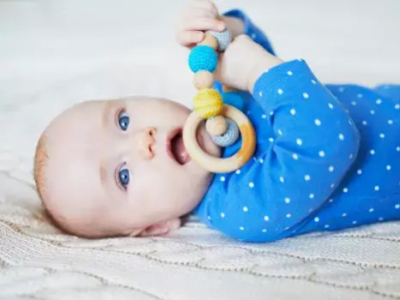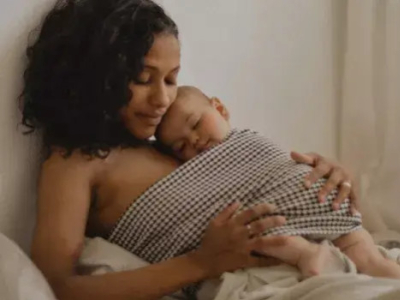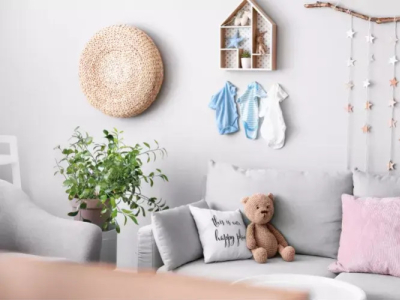
Understanding baby fever and temperature management
Fever is a rise in body temperature above 38°C. It is generally not serious and requires treatment only when it exceeds 38.5°C or when the child does not tolerate it well.
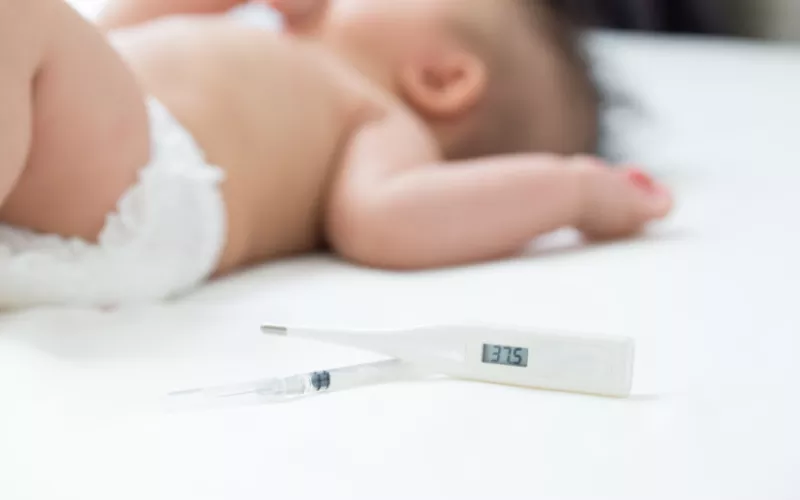
Define fever in baby
Fever is a frequent symptom that corresponds to a reaction of the body's defense against certain specific events such as infection, inflammation, vaccination, teething, etc.
While it is very useful in helping the body fight infection, it should however be monitored, especially in an infant.
A baby under 3 months old who has rectal temperature of 38°C must be treated the same day. Similarly for a baby between 3 to 6 months with a fever of 39°C or who has a fever for 48 hours must be seen by a doctor quickly.
Also be vigilant about the baby's behavior: if he eats less, has difficulty breathing, seems very tired, you must consult a doctor quickly.
Causes of fever in baby
Any infection can cause a fever in a baby.
Before 3 months, fever should not be taken lightly, as the risk of bacterial infection is high. A visit to the emergency room may be necessary.
Between 3 and 6 months, it is recommended to consult a doctor quickly even if the baby seems to be fine.
After 6 months, fever is a very common symptom. It is recommended to wait 72 hours before consulting, except if the baby shows abnormal signs. If the fever persists or if your baby's condition deteriorates, do not hesitate to consult as soon as possible.
The most common causes of fever are as follows:
- urinary tract infections
- viral respiratory infections (especially in winter) such as bronchiolitis
- gastroenteritis
- roseola or chickenpox
- ear infections and other ENT infections
- pneumonia
- meningitis
- bacteremia (blood infections)
Teaching can also cause fever but rarely above 39°C.
Take baby temperature

To take your baby's temperature, wait at least 20 minutes after feeding with an electronic thermometer.
Remember to clean the thermometer thoroughly before and after use.
You will also need to increase the temperature depending on the way the temperature is taken:
- Rectal way: this is the most accurate way and does not require an increase. For this reason, it is highly recommended. However, you have to be delicate in order to avoid creating an anal fissure and do not take it more than 3 times a day.
- Auricular approach: this method also allows precise measurement but it is difficult to use in children. It is a method not recommended before 2 years old.
- Buccal route: this method is for children over 5 years old. In this case, you must raise the temperature by 0.5°C
- Axillary area: this is a temperature measurement under the armpit. This method is not very precise and an increase of 0.6°C must be made
Solutions for baby temperature management
If the baby has a fever before 6 months, consult immediately.
After 6 months, the fever is often mild and disappears after 3 days. The objective is therefore to eliminate the discomfort generated by the fever. In case of moderate fever, if your little one smiles, eats, drinks and seems to tolerate the fever well then he is not in danger. However, keep an eye on his fever.
To improve his comfort, you can:
- avoid covering him too much
- ventilate the room and do not overheat it
- have your baby drink well as often as possible to avoid dehydration
Warning: a lukewarm bath can increase discomfort and create thermal shock.
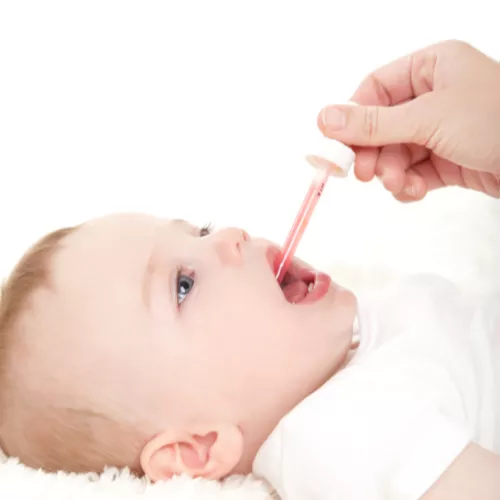
It is possible to administer antipyretic drugs, but you have to be very careful to respect the doses and not to combine the drugs.
You should never give ibuprofen to a baby under 6 months and in no case aspirin without medical advice. Before 6 months, you can use paracetamol and after 6 months, ibuprofen.
In all cases, before giving your baby any medicine, ask your doctor or pharmacist for advice and read the instructions carefully.
Fever must be treated if it persists for more than two days, exceeds 38.5°C, your child is less than 3 months old and/or has cannot tolerate fever (irritability, loss of appetite, headache, fatigue, etc.).
Baby's health is essential.
To guarantee him the healthiest possible environment, be careful with the furniture you buy for him. Many of them contain toxic or harmful substances. With our evolutive complete baby room, we guarantee you furniture made only with natural products, designed entirely in France and which will follow the growth of your child from birth to adulthood!

